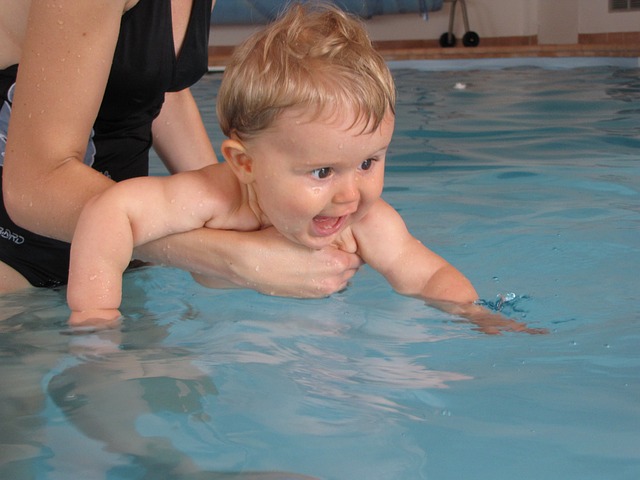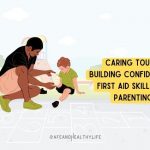
Image Source: Pixabay
Taking a child to their first baby swimming lessons can be nerve-wracking for most parents. If you’re currently considering taking your baby for swimming lessons, this article will help you with some tips and tricks so your experience can be both memorable and enjoyable.
How to determine they are ready for their first lesson
Before you take your child to the first swimming pool, you need to prepare them. Some babies will adapt better than others, while others actually adapt better than grownups. You should consult your health pediatrician on whether your child is healthy enough to start swimming.
Start preparing your baby
You can start to acclimate your child to water during bath times by helping them float for a while. This way they will get used to water and will be easy for them in the swimming pool. Ensure you hold their head so they don’t go underwater. Pour some water on their faces gently while in the tub so they can get to used splashing water and it will be easy for them to submerge.
Check out the swimming pool prior
Visit the pool where you intend to take your child during the day so you can get the environmental conditions of the place. Check whether the place is sunny or breezy and how chilly the water is or the temperature that would like for your child. Consult about swimming diapers and what a child is allowed to wear while in the water. With this information, you will be prepared for your first swimming lesson.
How to go about their first swimming lesson
You should arrive at the pool on time for your first baby swimming lesson so you can have time to dress your child and change into a swimming costume yourself. Babies will tire faster than older kids so you should not play in the water before the lesson.
Know what to expect
Know exactly what to expect when taking your baby swimming for the first time. Children between the ages of six months to two years need the parents to be in the water with them during the lesson. The first classes entail familiarizing your child with water, developing their confidence, developing their independence, and developing their swimming skills early.
Make it fun for them
You should strive to make it fun for your baby so they can love being in the water from the start. You can even sing songs while you swim and use toys that float about so your child can splash in the water and have fun while at it. Pouring water on their faces prepares them for submersion so they can be ready when the time comes.
Encourage your baby
Be positive and encourage your child by smiling or clapping and assuring them of how well they are doing so they can keep up the good work. Babies need to be praised so they feel comfortable in the water and confidence to go on. Regardless of how small their progress is, ensure you encourage them so they can feel good about themselves. In no time, your baby will get used to water and learn how to swim on their own.
Know when to give up
Unless your baby is tired, hungry, or ill, you should save the session for another day is they get wobbly every time you place them into the water. If you insist, they may associate swimming with being upset and it’s bound to happen every time you try. You can always try again on a different day.
Choose the right floats for your baby
If your baby is an infant, you may need to hold them with your hands while in the water. However, if they are a few months old, you may need to use a float. Babies are usually better off with float jackets or foam noodles. Armbands are not recommended as they may interfere with developing the right swimming strokes.
Keep the lessons short
Even though you’ll take your child to a warm pool for their baby swimming lesson, they should not be in the water more than 20 to 30 minutes as they’ll start to get cold. Toddlers and preschoolers can stay longer though as splashing generates body heat.
Have two or more towels
Have a towel ready to wrap the baby once they get out of the pool and have another one ready while changing them. Your baby will not appreciate a damp and cold towel so have two instead.
Conclusion
Take your baby for their first swimming lesson sooner rather than later. It’ll be easier for them to get used to water faster. Children below the age of one year have no fear and accept new experiences a lot better. As long as you support and encourage them, they will learn faster than you expect.
About The Author:
Stacey Smith is the freelance health writer. She is passionate to write about women’s health, dental health, diabetes, endocrinology and nutrition and provide in-depth features on the latest in health news for medical clinics and health magazines.
Ref. links
https://www.parents.com/baby/care/american-baby-how-tos/introduce-baby-to-swimming
https://www.parents.com/fun/activities/outdoor/swim-safety-and-fun-for-babies/
https://www.motherandbaby.co.uk/baby-and-toddler/baby/baby-development-and-milestones/teaching-your-baby-to-swim-tips




